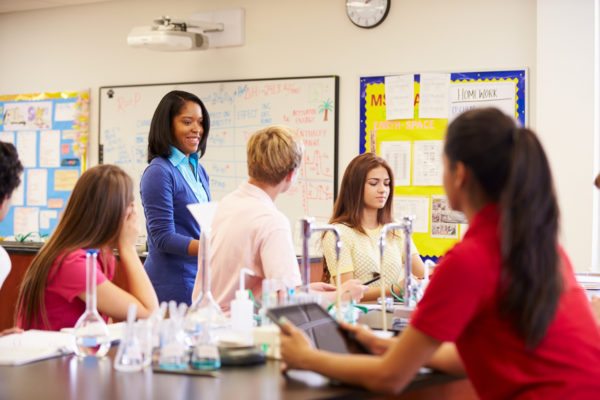Hands-on, real-world experiences and innovative teaching approaches would help teenagers become more involved in science learning, they say
A large majority of teenage students said they are interested in science, but most instructional approaches fail to bring the subject matter to life in an engaging way, according to a new survey.
“Students on STEM: More Hands-on, Real-World Experiences“, from the Amgen Foundation and Change the Equation (CTEq), was conducted to better understand what motivates U.S. high school students to study STEM.
Surveyed students said they want additional opportunities that will inspire them to explore careers in scientific fields, and teachers are uniquely positioned to stimulate students’ interest in STEM.
The survey found that many teenagers like science and understand its value, but common teaching methods, such as teaching straight from the textbook, do not bring the subject matter to life in the same way hands-on, real-life experiences do.
Eighty-one percent of surveyed students said they are interested in science, and 73 percent expressed interest in biology. However, only 37 percent of teenagers said they like their science classes “a lot.” By contrast, 48 percent reported liking non-science classes “a lot.”
Among surveyed teenagers who are interested in biology careers, teachers (85 percent) and classes (86 percent) rank right alongside their parents or guardians (87 percent) as the biggest influences on their career decisions.
When it comes to engaging students, those surveyed said two-way, hands-on learning, like experiments and field trips, are most likely to engage them in biology, followed by tools that help them relate biology to real life. One-way communication, such as class discussions or teaching straight from the book, are least interesting, but among the most common.
Next page: Looking beyond the science classroom
“We are in an era where scientific advances provide the opportunity to make meaningful progress against some of the world’s most serious diseases,” said Raymond C. Jordan, senior vice president of Corporate Affairs at Amgen and Amgen Foundation Board of Directors member. “To sustain this momentum, we must inspire the next generation of innovators. Through this study, we have seen that teachers are critical catalysts to inspiring a love of science in students.”
The survey also looked beyond the classroom, revealing that most teenagers lack access to additional resources and opportunities to learn more about scientific careers and engage with science professionals—experiences that are critical to developing a lifelong love of science.
Most survey respondents believe knowing an adult in their field of interest would be helpful, but only 32 percent actually know an adult in a science-based career. And just 22 percent know someone with a job involving biology.
Only 33 percent of surveyed teenagers have ever been involved in a science club or group, either in or out of school. Low-income teenagers are especially unlikely to have been involved, and are more likely to be unaware of extracurricular science offerings.
Low-income students also have the fewest pathways to science careers. They are less likely to know someone who works in biology (19 percent versus 25 percent of higher-income students) and not as likely to have access to career-planning resources.
“Students who pursue a STEM education today are the innovators who will solve the world’s greatest problems tomorrow, whether or not they become scientists or engineers,” said Linda P. Rosen, chief executive officer of Change the Equation. “Change the Equation is pleased to partner with the Amgen Foundation to help uncover how we can ensure all U.S. students, regardless of income level or location, have access to the right resources.”
For more information about the survey, visit amgeninspires.com/studentsonstem and join the conversation using #TeensTalkSci. Visit AmgenInspires.com and follow @AmgenFoundation to learn more about our commitment to inspire the next generation of scientists. For more on CTEq, visit changetheequation.org and follow @changeequation.
The research was commissioned by the Amgen Foundation and Change the Equation and conducted by C+R Research Services, a national marketing research firm that specializes in research with youth. A total of 1,569 online surveys were completed by students ages 14-18 years old. Participants were high school students (sophomore, junior and senior levels) currently attending public and private schools in the U.S. Hispanics and Blacks/African Americans were oversampled to ensure adequate representation, and the data was weighted by ethnicity and region to mirror the U.S. population. Data collection took place November 2015. For the full methodology, visit changetheequation.org/students-on-stem.
Material from a press release was used in this report.
- Friday 5: Universal Design for Learning - April 19, 2024
- Educators love their edtech, but want more training - April 18, 2024
- Friday 5: College and career readiness - April 12, 2024


